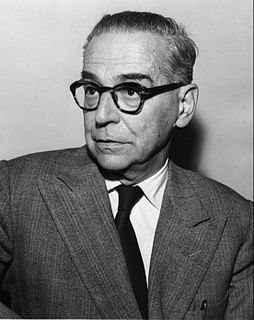A Quote by Blaise Cendrars
Without the help of selfishness, the human animal would never have developed. Egoism is the vine by which man hoisted himself out of the swamp and escaped from the jungle.
Related Quotes
He said that man’s heart was the only bad heart in the animal kingdom; that man was the only animal capable of feeling malice, envy, vindictiveness, revengefulness, hatred, selfishness, the only animal that loves drunkenness, almost the only animal that could endure personal uncleanliness and a filthy habitation, the sole animal in whom was fully developed the base instinct called patriotism, the sole animal that robs, persecutes, oppresses and kills members of his own tribe, the sole animal that steals and enslaves the members of any tribe.
Wherefrom are human values to be derived and how are they to be developed? Human values are born along with human birth. They exist in union. Unfortunately, man today separates himself from human values and yet wants to live as a human being. To recover human values, man has to take the spiritual path.
Our German language has a word which in a magnificent way denotes conduct based on this spirit: doing one's duty [Pflichterfüllung]-which means serving the community instead of contenting oneself. We have a word for the basic disposition which underlies conduct of this kind in contrast to egoism and selfishness-idealism. By 'idealism' we mean only the ability of the individual to sacrifice himself for the whole, for his fellow men.
This state of mind, which subordinates the interests of the ego to the conservation of the community, is really the first premise for every truly human culture... The basic attitude from which such activity arises, we call-to distinguish it from egoism and selfishness-idealism. By this we understand only the individual's capacity to make sacrifices for the community, for his fellow men.
A man traveling across a field encountered a tiger. He fled, the tiger after him. Coming to a precipice, he caught hold of the root of a wild vine and swung himself down over the edge. The tiger sniffed at him from above. Trembling, the man looked down to where, far below, another tiger was waiting to eat him. Only the vine sustained him. Two mice, one white and one black, little by little started to gnaw away the vine. The man saw a luscious strawberry near him. Grasping the vine with one hand, he plucked the strawberry with the other. How sweet it tasted!
There comes a time when a man finds himself in front of a dark uncrossable abyss, which he himself has spent years digging. He cannot go forward, and has no way back. Words have failed, tears won't help, and who would he call out to? He can't even remember his own name. Then the man sees that on this god's green earth there is but one true suffering: the torment of guilty conscience.
It is something like the way dame Nature gathers round a foreign body an envelope of some insensitive tissue which can protect from evil that which it would otherwise harm by contact. If this be an ordered selfishness, then we should pause before we condemn any one for the vice of egoism, for there may be deeper root for its causes than we have knowledge of.






































